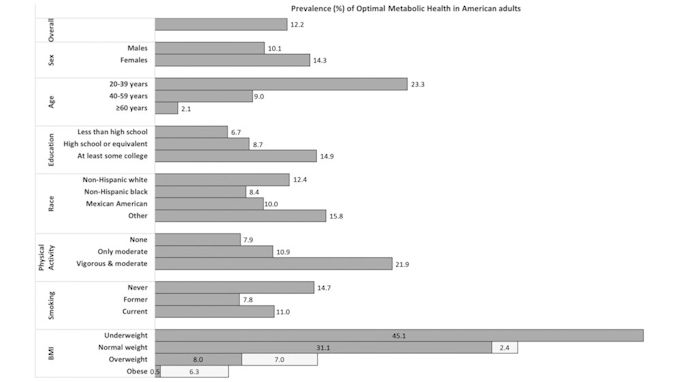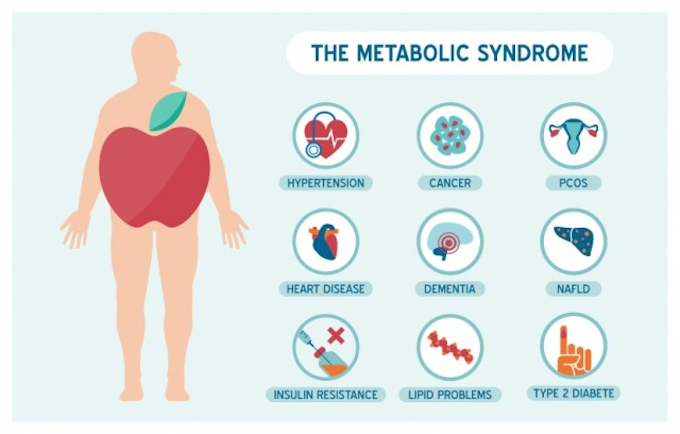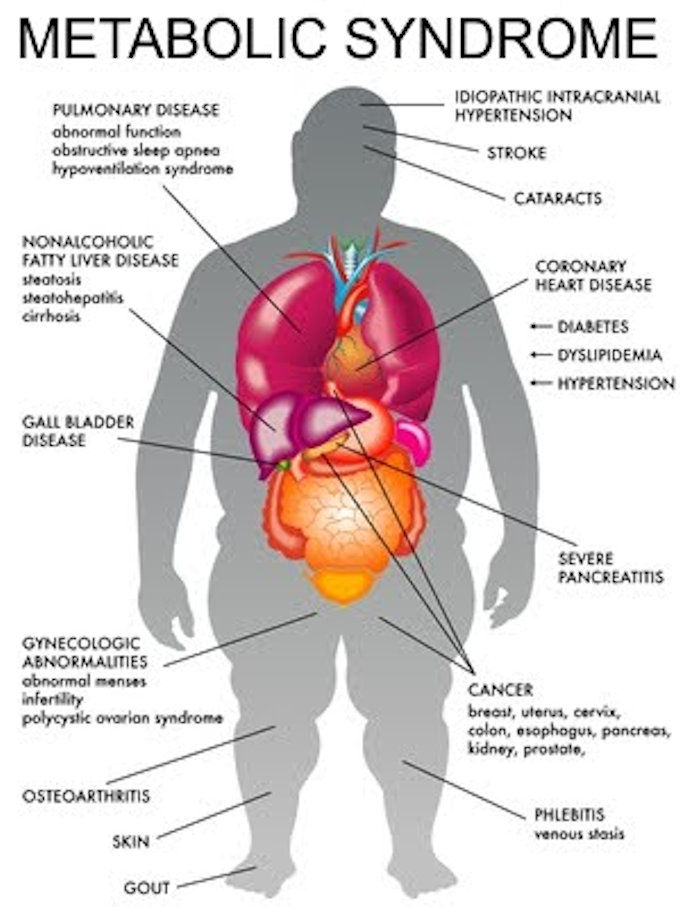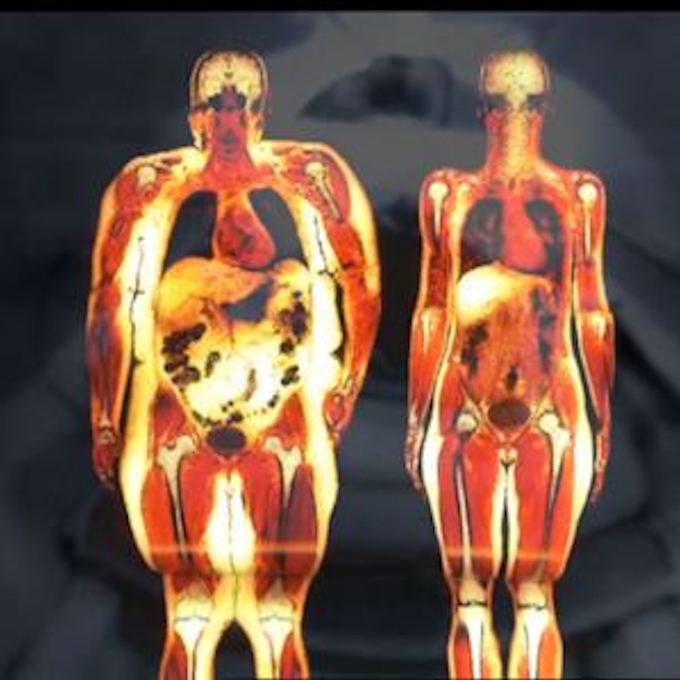
Your Metabolism and Your Health
Hidden Drivers of Future Disease
Most of the remarkable things your body does all the time, are completely automated and controlled by the both electrical and chemical signalling that you are completely unaware of. Your metabolism includes many processes by which your body responds to the food you eat, the environment in which you live, and what you do with our time, in an effort to keep you healthy and well.
If your life choices are poor, you make the function of your metabolism difficult, and that can cause both physical and mental malfunction, that makes your quality of life poor. For more than 30 years five common problems together have been used to describe Metabolic Syndrome. Prof. Gerald Reaven, an endocrinologist at Stanford University School of Medicine, suggested in 1988 these five indicators of metabolic health; high blood pressure, abdominal obesity, high fasting glucose, low HDL-Cholesterol and high fasting triglycerides. Further, Prof. Reaven claimed that insulin resistance was a leading indicator of future metabolic disease.
Professor Timothy Noakes said at his trial in 2016, "I didn't understand insulin resistance in 1979, when I was taking my own blood tests before and after exercise. I can now see in the data evidence that I was becoming insulin resistant 30 years ago."
He went on to say, "Because of this experience, I believe that we under-diagnose insulin resistance. We wait until people are diagnosed as pre-diabetic, before recognising insulin resistance. But that may have been a fact for 20 or more years. As it was with me. Insulin resistance / Hyperinsulinaemia may be the most prevalent medical condition on earth."
The more we look, the more obvious this becomes. There is also good news; that lifestyle changes are very effective in restoring health, that was once lost.
The complications that may result from metabolic syndrome are frequently serious and long-term (chronic). They include:
| fatty liver disease | type two diabetes | ||
| stroke | hardening of the arteries | ||
| heart attack | stroke cardiovascular disease | ||
| kidney disease | peripheral artery disease | ||
| Dementia | Some Cancers |
Some Markers of Metabolic Illness
Fill in Your Own Numbers
Your Name:
Waist Circumference:
Your Height:
Fasting Glucose:
HbA1c:
BP Systolic:
BP Diastolic:
Triglycerides:
HDL-Cholesterol:
Medications?:
Two simple measures as health indicators.
Divide your height by your waist measurement. The result should be close to "2".
Divide Total Cholesterol by your HDL-Cholesterol. A good result is anything under "5".
So if we ask how many adult Americans are metabolically healthy, what do we find? Those who have optimal health are only 12% of the population. (None of the six markers listed.) A medical diagnosis of Metabolic Syndrome requires you to have three of those markers. Here is the study, Prevalence of Optimal Metabolic Health in American Adults, published in 2018.
Metabolic Syndrome

Click to Image to Enlarge
In this image and the image in the left you can see that Metabolic Syndrome is a serious business. It's at the heart of the chronic disease problem that is 80% of all the "medical" problems we have. But the CAUSE is not medical, the cause is nutritional.
Visceral (Internal) Fat
Click to Image to Enlarge
Internal Obesity - Visceral Fat is unhealthy. It begins with non-alcoholic liver disease. The increasing dysfunction of the internal organs is driven by dietary choices and constant insulin overload.
Click to Image to Enlarge
This is the Banting Diet, as proposed by the British Endocrinologist Prof. Raymond Green, in 1951. Green taught at Stanford University, in the 1950's.
Insulin Resistance
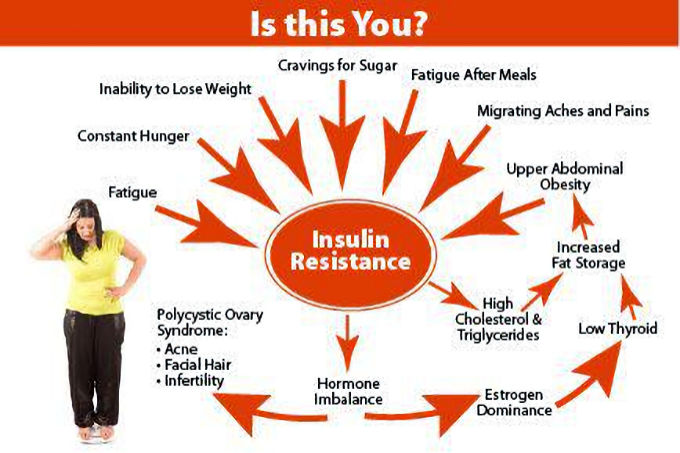
It's not part of the usual medical protocol to measure insulin resistance. Doctors wait until a diagnosis of a treatable disease is evident. There is no medical treatment for insulin resistance, so there is no routine testing for it. Yet as Prof. Noakes said (above), after he was diagnosed with type two diabetes, "I can now see in the data evidence that I was becoming insulin resistant 30 years ago."
In addition Insulin Resistance is a tricky topic. Your body can be generally Insulin Resistant, but also each organ in the body can be more or less insulin resistant at any one time. We understand that the key function of Insulin is to drive excess glucose (toxic) out of the blood stream, into muscles, into fat storage, or sometimes to waste it as heat. But insulin is also a growth hormone, and a signalling hormone. For instance when Insulin is "on" fat burning (weight loss) is turned "off".
After a brain injury, if the brain swells and it may become insulin resistant, the glucose pathways that supply energy to the brain may be closed. It's known that the brain prefers ketones as fuel, and in situations where glucose pathways are impeded, the ketone energy pathway is usually open. Exogenous ketones are now available on the market, and are being used experimentally (Military - blast casualties and deep diving accidents.). Potentially they might be available in every doctors office to treat concussions.
Testing for Insulin Resistance
Dr Bret Scher (7 minutes)
Published by: Metabolic Mind
Measuring Insulin Resistance
Mario Kratz, Phd (22 minutes)
Published by: Nourished by Science
Testing yourself for insulin resistance could be a powerful tool for improving not only your metabolic health, but also symptoms of psychiatric illness. Learn what tests to ask for, how to interpret the results and why insulin resistance matters for both metabolic and mental health.
Mental Health
Metabolic dysfunction, such as insulin resistance and pre-diabetes, is closely associated with symptoms of depression. But how do we know if metabolic dysfunction causes depression? Or if metabolic therapies could treat depression? Those are more difficult questions to answer, but there is accumulating biological evidence that links insulin resistance and depressive disorders.
What if symptoms of bipolar disorder are the result of metabolic dysfunction involving our mitochondria? According to the metabolic and mitochondrial hypothesis of bipolar disorder, metabolic interventions like nutritional ketosis (aka ketogenic diet) have the potential to transform outcomes of people living with mental illness.
Dr. Chris Palmer is a Harvard-trained psychiatrist and world-renowned expert in metabolic psychiatry. He has published numerous papers in prestigious medical journals about the use of ketogenic diets in mental illness therapy. His book, Brain Energy, details a novel underlying hypothesis of the mechanism of mental illness that promises to revolutionize psychiatric care.
Metabolism, Mitochondria & Bipolar Disorder
Chris Palmer, MD (14 minutes)
Published by: Metabolic Mind
You might also like to hear NZ Dr Matthew Phillips speak to Dr Bret Scher on the Metabolic Mind Podcast. There are many ways in which being in ketosis seems to be helpful.  It's at the bottom of Dr Matthew Phillips personal page.
It's at the bottom of Dr Matthew Phillips personal page.
Further reading
Here are Eight more Useful Preparation Pages
![]() Understanding Private and Professional Dissonance
Understanding Private and Professional Dissonance
![]() Better Nutrition to improve your health
Better Nutrition to improve your health
![]() Lifestyle Changes. Nutrition First, then Exercise.
Lifestyle Changes. Nutrition First, then Exercise.
![]() Preserving Bone and Muscle Strength
Preserving Bone and Muscle Strength
![]() What Causes Type II Diabetes? Obesity?
What Causes Type II Diabetes? Obesity?
![]() What is the Best Dietary Pattern for Humans? (Includes OFH Video Three)
What is the Best Dietary Pattern for Humans? (Includes OFH Video Three)
![]() The Search for Evidence Based Medicine.
The Search for Evidence Based Medicine.
![]() Forbidden Conversations - Family Silence - My Health is My Business (Includes OFH Video Two)
Forbidden Conversations - Family Silence - My Health is My Business (Includes OFH Video Two)

